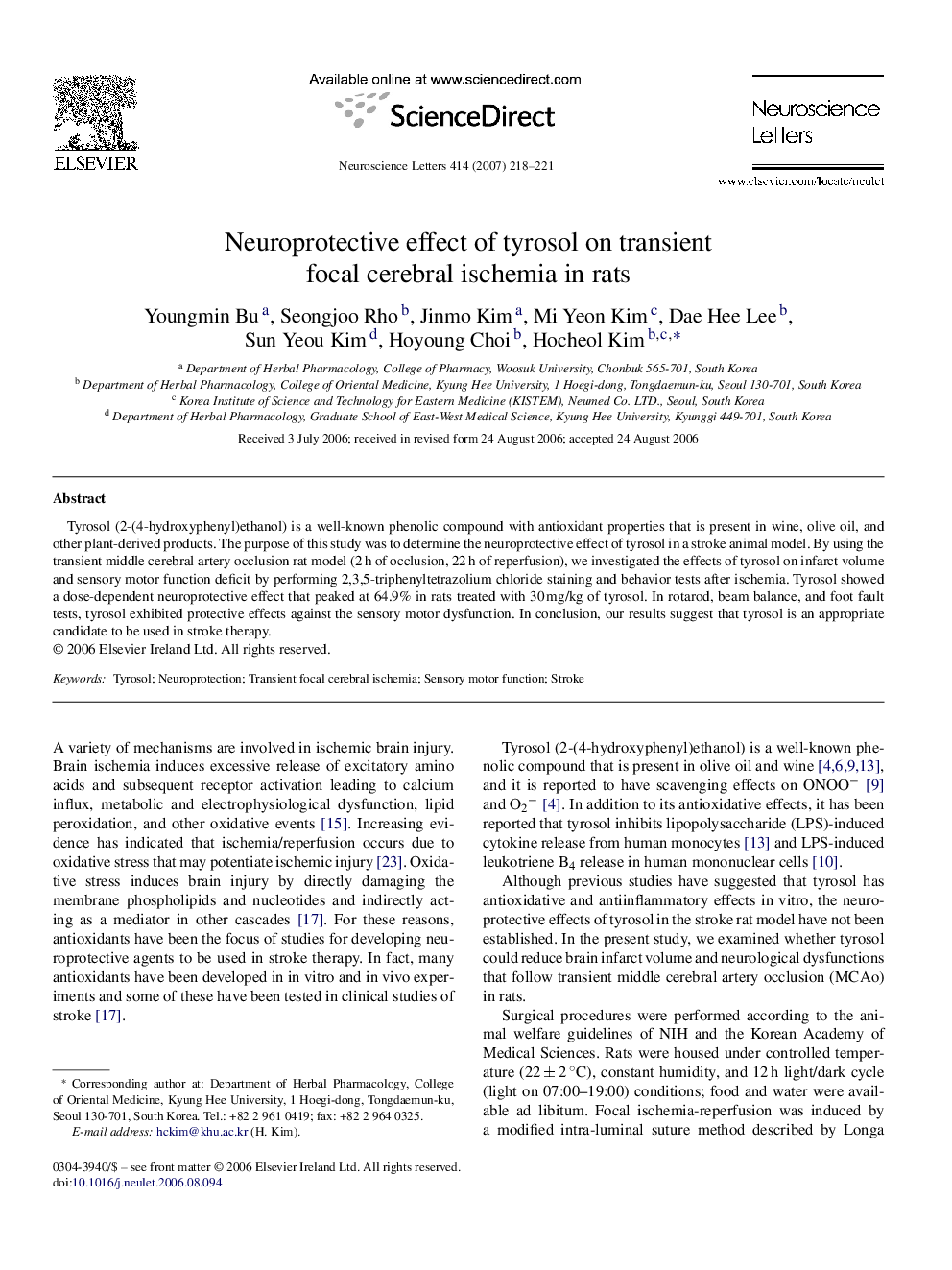| Article ID | Journal | Published Year | Pages | File Type |
|---|---|---|---|---|
| 4349793 | Neuroscience Letters | 2007 | 4 Pages |
Abstract
Tyrosol (2-(4-hydroxyphenyl)ethanol) is a well-known phenolic compound with antioxidant properties that is present in wine, olive oil, and other plant-derived products. The purpose of this study was to determine the neuroprotective effect of tyrosol in a stroke animal model. By using the transient middle cerebral artery occlusion rat model (2Â h of occlusion, 22Â h of reperfusion), we investigated the effects of tyrosol on infarct volume and sensory motor function deficit by performing 2,3,5-triphenyltetrazolium chloride staining and behavior tests after ischemia. Tyrosol showed a dose-dependent neuroprotective effect that peaked at 64.9% in rats treated with 30Â mg/kg of tyrosol. In rotarod, beam balance, and foot fault tests, tyrosol exhibited protective effects against the sensory motor dysfunction. In conclusion, our results suggest that tyrosol is an appropriate candidate to be used in stroke therapy.
Related Topics
Life Sciences
Neuroscience
Neuroscience (General)
Authors
Youngmin Bu, Seongjoo Rho, Jinmo Kim, Mi Yeon Kim, Dae Hee Lee, Sun Yeou Kim, Hoyoung Choi, Hocheol Kim,
